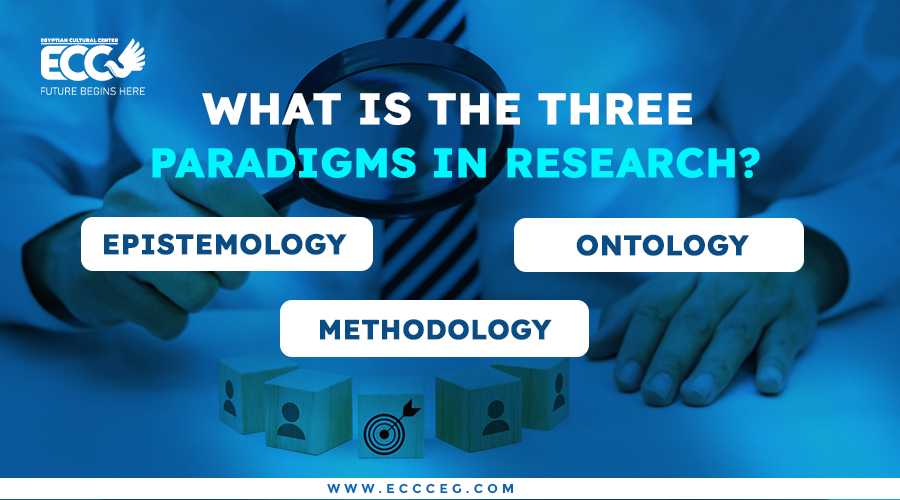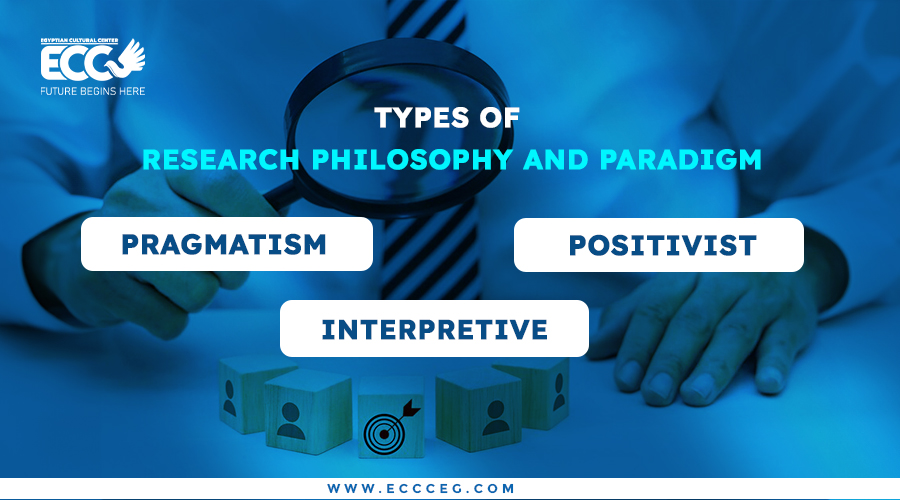If you are thinking about writing a research paper, you should know that you must establish criteria to build the approach that you will use as a methodology in your work, so you must understand the concept of research philosophy or paradigm.
A research philosophy and paradigm in simple terms, it is the process of building a research plan that can help you quickly understand how the theories and practices of your research project work.
The goal of this article is to introduce you to research paradigms and explain them as descriptively as possible using examples.
Contact with IBAS: +201000498154
What is a research philosophy and paradigm?
A research philosophy and paradigm are a method or pattern for conducting research. It is a set of ideas, beliefs, or understandings within which theories and practices can function.
Most paradigms derive from one of two research methodologies: positivism or Interpretation.
Each research project uses one of the research paradigms as a guide to create research methods and carry out the research project most legitimately and reasonably.
Although there were essentially two paradigms, several new paradigms have emerged from them, especially in social science research.
Read More: What is the meaning of DBA degree?
What is the goal of a research philosophy and paradigm?
You must first understand the three pillars to select the best research paradigm for your project: ontology, epistemology, and methodology.
- Epistemology
- Ontology
- Methodology

- Epistemology
When you conduct scientific research, epistemology will allow you to describe how you come to know or discover that knowledge. Its meaning in Greek is “knowledge.” This science is related to knowledge itself, its forms and nature, how you acquire it, and how you are going to express it to others.
- Ontology
Ontology is a philosophical branch that is related to the mental or rational process you carry out to believe that a phenomenon is real or makes sense. This philosophical study is based on the nature of reality or existence, of being or becoming. It also basically categorizes existing things and their relationships. This science always seeks to answer the question, “What is reality?”
- Methodology
Methodology, as you surely know, refers to the procedures, techniques, approaches, and tactics you use to carry out your research project. It also relates to the way you manage your time and resources. A clear example of this is the instruments you use, the participants, the data you collect, and their subsequent analysis.
Here you will answer the “How?”, about the method you used for your project. In short, the methodology consists of the systematic processes that you carry out on your project and how you do it.
Contact with IBAS: +201000498154
What is the goal of a research philosophy and paradigm?
The research, or scientific, paradigm is relevant for several of the reasons that we have previously mentioned. Part of the elements that compose it express their importance in different aspects of the research.
Epistemology and ontology make up a holistic vision of how to see knowledge, where it comes from, how to interpret it, and what methodological strategies you will use to understand it. These aspects increase the quality of your research and your creativity when undertaking.
Axiology will keep you within ethically acceptable limits so that your thesis or work is serious and respected. When you defend your thesis, you will be asked about the research paradigm, and you must have these concepts at hand.
Read More: 8 Types of MBA Specializations You Can Study
The impact of the paradigm on your academic project
The conception of what a paradigm is, according to its definition, is very relevant and impactful for your academic project because it is based on the specific assumptions discussed above. Furthermore, your choice of paradigm for your research implies its unification with the concepts of ontology, axiology, and epistemology. Those are the elements that will lead you towards a particular methodology.
Types of research philosophy and paradigm
we are going to explain the three main types of scientific paradigms that are used so that you can understand in depth what they are and what they are for.
- Positivist
- Pragmatism
- Interpretive

- Positivist
The positivist paradigm is characterized by being the conceptual framework of your scientific research. Quantitative research is defined by having a positivist approach, since positivists are those who believe in testing empirical hypotheses.
Positivists, ideologically, assume that the findings of the studies were generalized to similar others without depending on the same environments and situations. This may be true only for quantitative variables such as speed, volume, strength, weight, and density.
Now, in the field of behavioral and social sciences, quantitative research tends to confirm that any individual behavior can be analyzed, explained, and predicted using the scientific paradigm for research.
In the social sciences, the positivist researcher will try to control all the factors that may have an impact on his work.
To do this, it is necessary to find a controlled environment, such as a laboratory, and perform a scientific experiment. But logically, human behavior cannot be studied in such environments. That is precisely why positivist methods have almost never been able to carry out good research on human behavior.
However, with the birth of data science and Machine Learning, it works perfectly.
Contact with IBAS: +201000498154
- Interpretive
You will use the interpretive approach mainly in the social sciences. Interpretivists understand that human behavior is varied and cannot be determined through statistics or predefined models.
Human behavior will always be linked to situations and contexts, in addition to being influenced by environmental factors and their genes. That, in itself, determines one of the main differences with scientific variables. The latter are easy to control if they are in a certain place, such as a laboratory.
So, the interpretive approach focuses on the behavior of humans in their daily lives and not in a controlled environment.
- Pragmatism
This last paradigm was born among philosophers who argued that you cannot access the truth about the real world. That is, they maintain that reality is in constant renegotiation, interpretation, and debate. That means that the only valid method is the one that solves the underlying problem, regardless of the method.
Read More: Mba In Saudi Arabia
To begin your journey in studying an MBA with the Egyptian Cultural Center, register now for a free consultation with one of our educational consultants through the following link: https://eccceg.com/



